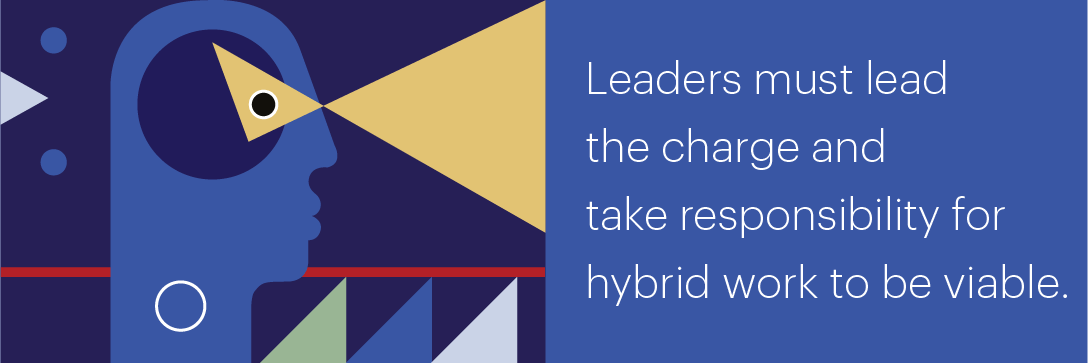
After remote work exploded during the COVID-19 pandemic, in the last few months, most organizations have settled into a hybrid arrangement, which involves working two to three days a week at the office and splitting tasks that are best done in person versus those done individually. For many of us, this change in our routine signifies a return to normal – coming back to a life we left behind – our offices, our commute, and our colleagues. However, we might just be embarking on a journey that is even more challenging than what we experienced before because hybrid work is more complex to get right than remote work. Perhaps there isn’t any company out there that will get this right, bang on, but the ones that will do a better job of making this model work will certainly edge out competition, especially as we, as an industry, continue to grapple with unprecedented attrition. On the flip side, if organizations treat hybrid work as a stop-gap arrangement, a wait-and-watch game until everyone can be hollered back to the office full time, results will show.

Reorient how you communicate
A top-down assertive tone will impact talent retention poorly because, increasingly, people want to accomplish tasks with a sense of shared vision. Don’t treat return to office as the new normal; be clear about why a hybrid working model works and how a periodic in-person presence serves the broader strategy. People must embrace the idea of purpose-in-presence when deciding how and where work needs to happen. To implement this, we leveraged the work-from-anywhere as a flexibility option for all our employees, but we also conducted a pulse survey to support a voluntary return to office.
Consider the impact of a prolonged pandemic on mental health
The hybrid work culture will test the authenticity of our people-first approach — a ruminative set of dos and don’ts work. Because we have all experienced the fatigue of being on endless calls through the pandemic, we now formally encourage scheduled 30-minute meetings to end early by five minutes and scheduled hour-long meetings to end by 10 minutes so that people have some time to take a break and recharge before the next call. We believe that when we listen to our employees as much as we listen to our clients and include experiential learnings, we take concrete steps toward building a more compassionate work culture.
Challenge core impulses regularly
Leaders are not task managers. We must commit to embracing complexity and nuance in situations that employees might be facing. With all this comes the need for self-inquiry and the ability to hold ourselves accountable because our management style is deeply conditioned in favor of face-to-face interaction. Weeding out bias from our mindset, decision-making, and technologies is crucial, and there is value at stake if we don’t level up to these challenges.
Remote work has enabled us to expand our reach and dig deeper into geographies to access a talent pool that was earlier out of our reach. Some people were hesitant to move out of their hometowns due to personal commitments, others were restricted by physical challenges, but on our payrolls, these people are now building both dimension and diversity. We expect this trend to accelerate, spurring an even faster adoption of automation in the workplace.

Innovation in recruitment has advanced to the point wherein hiring through digital platforms is ubiquitous. The challenge is to create a more personalized experience right from the get-go.
Overall, the pandemic has heightened the importance of delivering the right employee experience through digital transformation. And we are all for a pitch-perfect, powerful, and best-in-class toolkit as a first step. However, a successful digital transformation must also include understanding nuanced circumstances that people might be grappling with because, ultimately, tools don’t take into account complexities, and it is becoming increasingly important to look at how grey areas can be addressed or risk losing out on talent.










